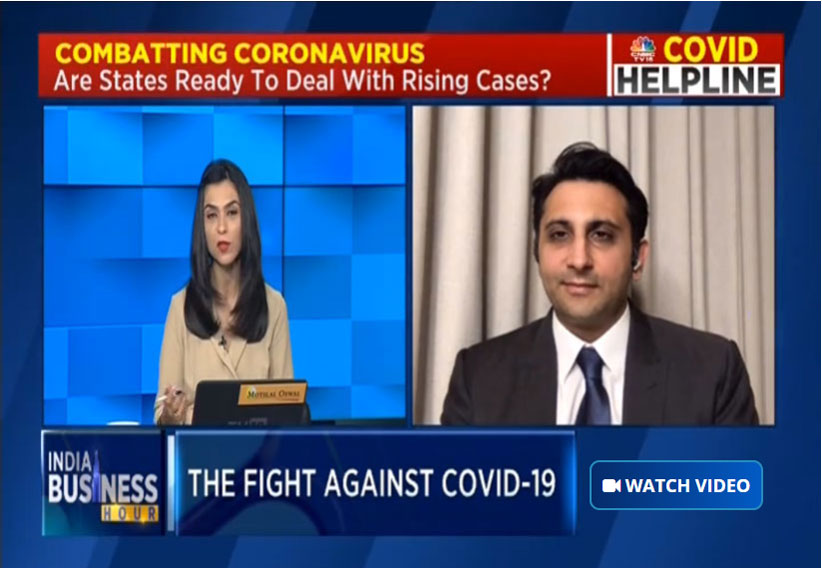2 April, 2020
Serum Institute to go for human trials for COVID-19 vaccine by year-end, says Adar Poonawala
As governments race to get a handle on the spread of the coronavirus and cure the affected people, the medical community has been busy working on finding a vaccine to prevent this virus from becoming a pandemic.
The World Health Organisation (WHO) has gone on record saying it does not expect a vaccine to be ready for at least 18 months.
More than 35 companies and academic institutions have entered the race to create such a vaccine. As of March 20, the WHO website said that there are more than 40 vaccine candidates that are in various stages of development.
Global pharmaceutical giant Johnson & Johnson said it had selected a lead candidate vaccine for the novel coronavirus. It began work on a vaccine in January using the same technology it used to develop a vaccine for Ebola. It expects to move to human trials by September and said the vaccine could be ready for emergency use by early next year.
Indian pharmaceutical companies are also in the race to produce a vaccine against COVID-19. Pune-based Serum Institute of India has partnered with American biotechnology firm Codagenix to develop such a vaccine, and expects it to be ready by early 2022.
Paul Stoffels , chief scientific officer at Johnson & Johnson said that it can’t be explained why the virus has different strengths in different regions. “It might be a matter of exposure that there is less exposure so far in the developing world in many of the countries in the South and therefore it is not there. Might have something to do with temperature or nature, but most probably not.”
Stoffels further added that the virus is very aggressive and it goes very fast. “This is a quite aggressive virus. It is deadly because it infects so fast. 1-3 percent of cases die, but at the same time it goes so fast and it touches so many people and that is what makes it such a deadly virus over the world. We have never seen this before that a virus goes so fast and deadly over the world,” he said.
On the vaccine, he said, “We started with our vaccine on January 15 when we got the code from the Chinese researchers. April 1, we have selected our lead candidate and we are working very hard now to get into the clinic and that will happen by early September. Between early September and end of the year, we are going to generate a lot of new data in the clinic hopefully showing safety, immunogenicity and then later early next year hopefully getting to clinical efficacy.”
Adar Poonawala, CEO of Serum Institute of India, said, “It does take 6-7 years normally to make a vaccine. However, I think we should be able to go into human trials by the end of this year because we are entering into animal studies in about 3 weeks from today. So, that is very encouraging news and I can revise my earlier estimate from 2022 to maybe early next year.”
“We have also tried to make a vector vaccine using our Measles Schwartz strains with a company in the United States and that is about 3-4 months behind the Codagenix project. So, we are firing both these barrels which we have zeroed in on after a lot of conversations and we hope to put that candidate also in animals very soon, “he added.
Source: CNBCTV18 (2nd April 2020)
 Back to News
Headlines
Back to News
Headlines